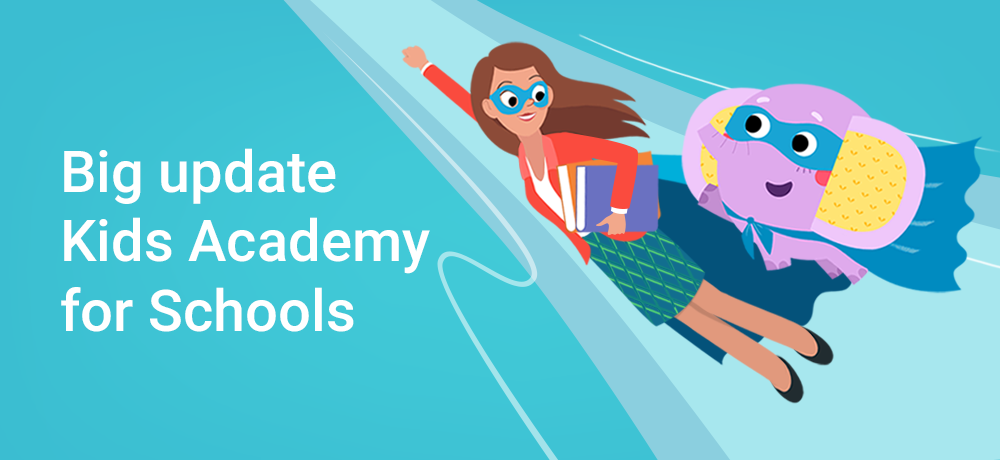Time-telling skills Worksheets for 6-Year-Olds
5 filtered results
-
From - To
Explore our engaging Time-Telling Skills Worksheets designed specifically for 6-year-olds! Perfect for young learners, these worksheets offer a fun and interactive way to master the basics of telling time. Children will enjoy hands-on activities, including matching clocks, drawing hands on analog clocks, and answering time-related questions, all tailored to enhance their understanding of hours and half-hours. Our resources foster essential problem-solving skills while promoting confidence in reading both analog and digital time. Ideal for classroom use or at-home learning, these worksheets support early math skills and make learning about time enjoyable and effective. Start your child's journey to mastering time today!
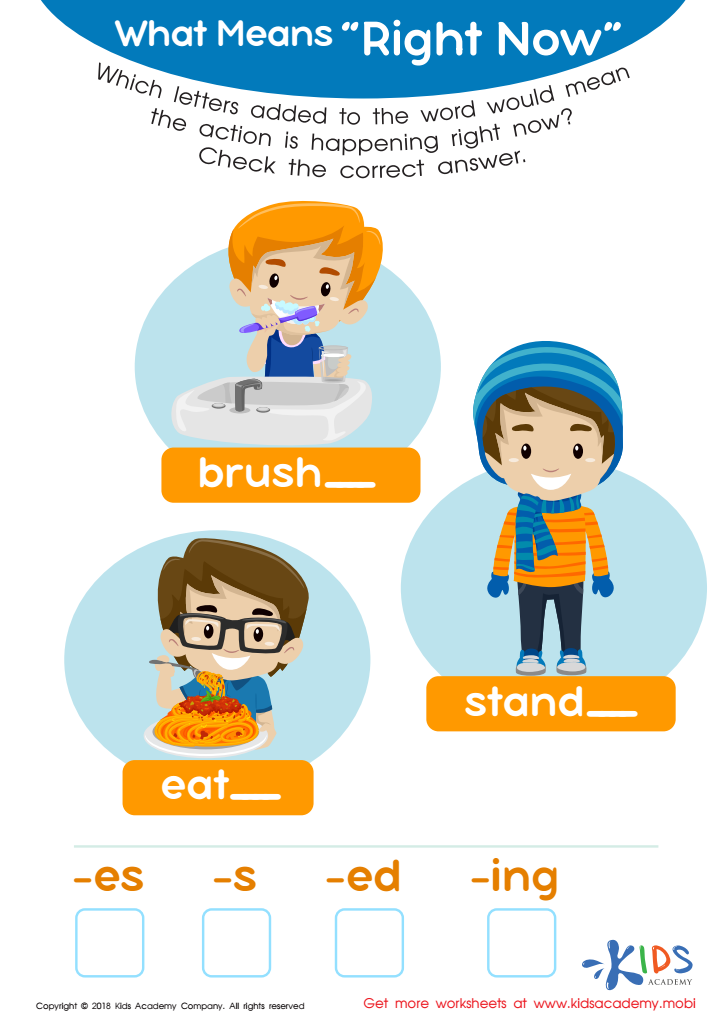

What Means "Right Now" Worksheet
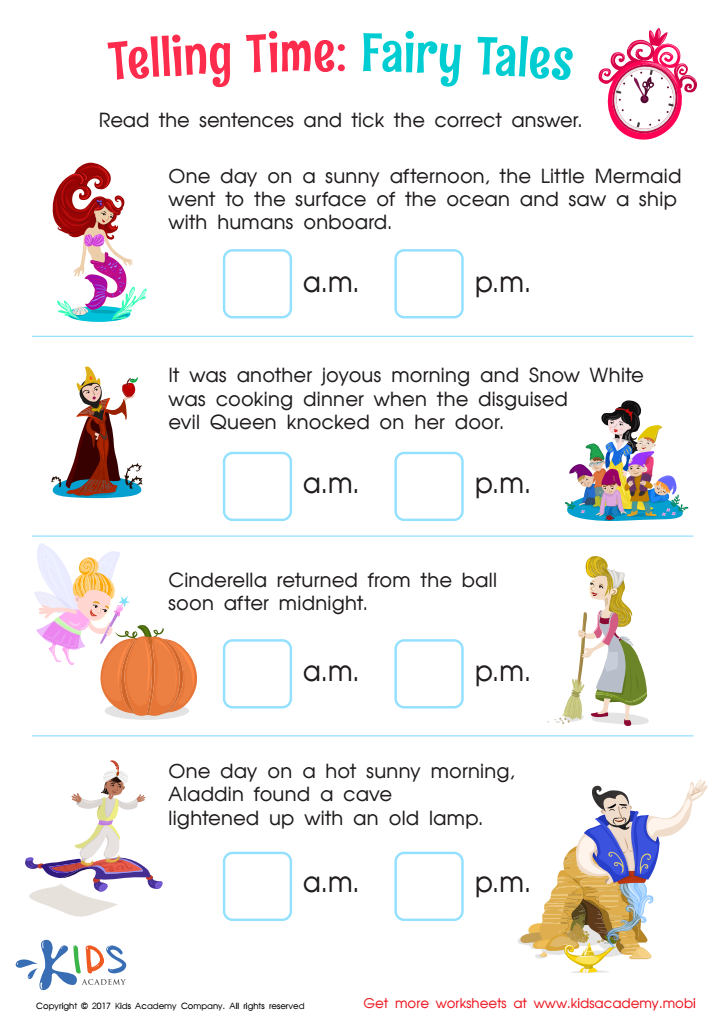

Telling Time: Fairy Tales Worksheet
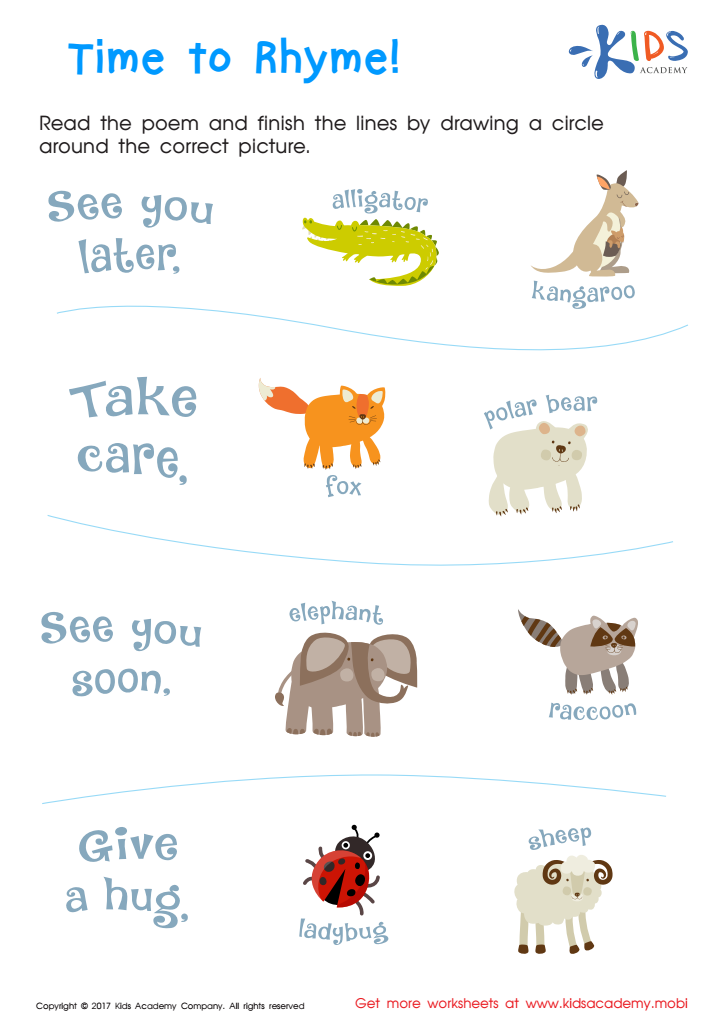

Time to Rhyme Rhyming Worksheet
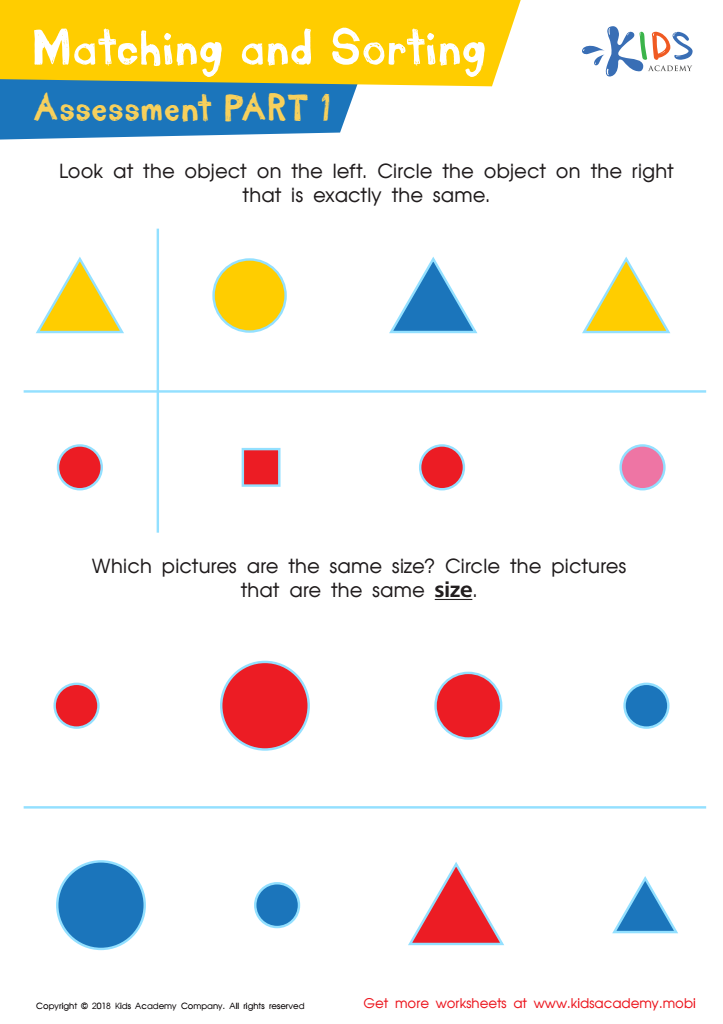

Matching and Sorting for Kindergarten: Assessment 1 Worksheet
Time-telling skills are crucial for 6-year-olds as they lay the groundwork for a child's understanding of daily routines, responsibility, and personal time management. At this age, children start their formal education, where learning to tell time becomes intertwined with various subjects and daily activities. Mastering time-telling helps children develop a sense of structure within their day, fostering independence as they manage tasks and understand the flow of time.
Moreover, knowing how to read clocks enhances cognitive skills, such as counting and sequencing, which are essential for arithmetic. Understanding time encourages children to value punctuality and reliability, key traits that will serve them throughout their lives, both socially and academically.
For parents and teachers, fostering time-telling skills creates opportunities for engaging discussions about schedules, planning, and responsibilities. It encourages application of math skills in real-life contexts, making learning more relevant and practical. This foundational competence not only builds self-esteem but also empowers children to make choices about how they spend their time, crucial for nurturing their decision-making abilities. In summary, prioritizing time-telling skills equips children with essential life skills that promote overall growth, responsibility, and a sense of community.
 Assign to My Students
Assign to My Students









